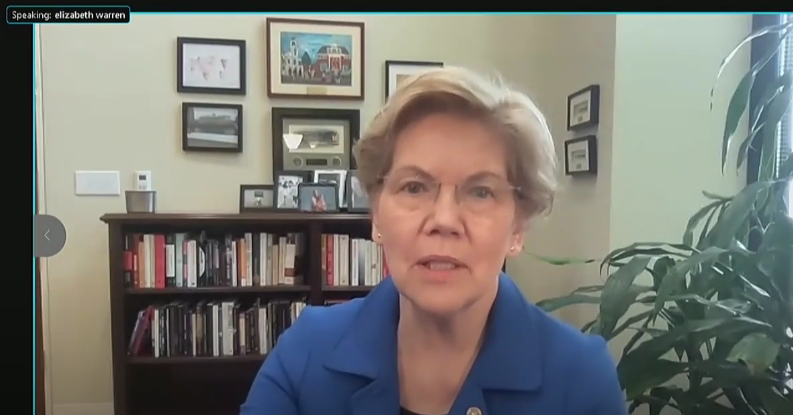In full transparency, the following is a media release from Sen. Elizabeth Warren’s office. She was elected by voters in the Commonwealth of Massachusetts to serve the state in Washington DC in the US Senate. She is a Democrat. (file photo)
***
[broadstreet zone=”53130″]
WASHINGTON DC – United States Senators Elizabeth Warren (D-Mass.), Sherrod Brown (D-Ohio), and Tina Smith (D-Minn.) wrote to the eight largest Online Program Management (OPM) companies — 2U, Academic Partnerships, Pearson, Wiley, Bisk, Kaplan, Grand Canyon, and Zovio — that administer online degree programs for many colleges and universities, raising concerns about their business practices that incentivize aggressive recruitment tactics and may have contributed to rising student debt loads.
“We continue to have concerns about the impact of OPM partnerships on rising student debt loads. The responses to our previous letters confirmed that OPMs often have tuition-sharing arrangements with universities, which commit an ongoing percentage of tuition revenue to the OPM to finance the start-up and ongoing costs of operating online degree programs. OPMs often receive 50% or more of students’ tuition. These agreements may create a disincentive to lower costs,” wrote Senator Warren and her colleagues.
[broadstreet zone=”53230″]
Senators Warren and Brown first questioned OPM companies business practices in January 2020. Since then, the COVID-19 pandemic has significantly increased the need for online education. OPM partnerships are growing quickly and becoming indispensable to university finances and operations. In January of 2020, OPM companies had nearly 200 partnerships with universities and hundreds of thousands of students. By the end of 2021, experts estimate that colleges and universities had 367 OPM partnerships, and some institutions now rely on OPMs for 40-50% of their total enrollment.
The tuition sharing-model also creates incentives for aggressive recruitment tactics. One OPM contract required it to contact prospective students at least 13 times a day, for ten days in a row. This raises questions about the extent to which federal resources are being spent on marketing, recruitment, and profit; and whether OPM arrangements, which are based on guidance issued by the Department of Education in 2011, violate the incentive compensation ban in the Higher Education Act.
The senators asked for a response to their set of detailed questions about the scale and logistics of OPM operations and tuition-sharing agreements, the demographics of students they serve, the types of programs they manage, tuition, the breakdown of their expenditures, and their use of federal aid dollars by no later than January 28, 2022.
[broadstreet zone=”54526″]

